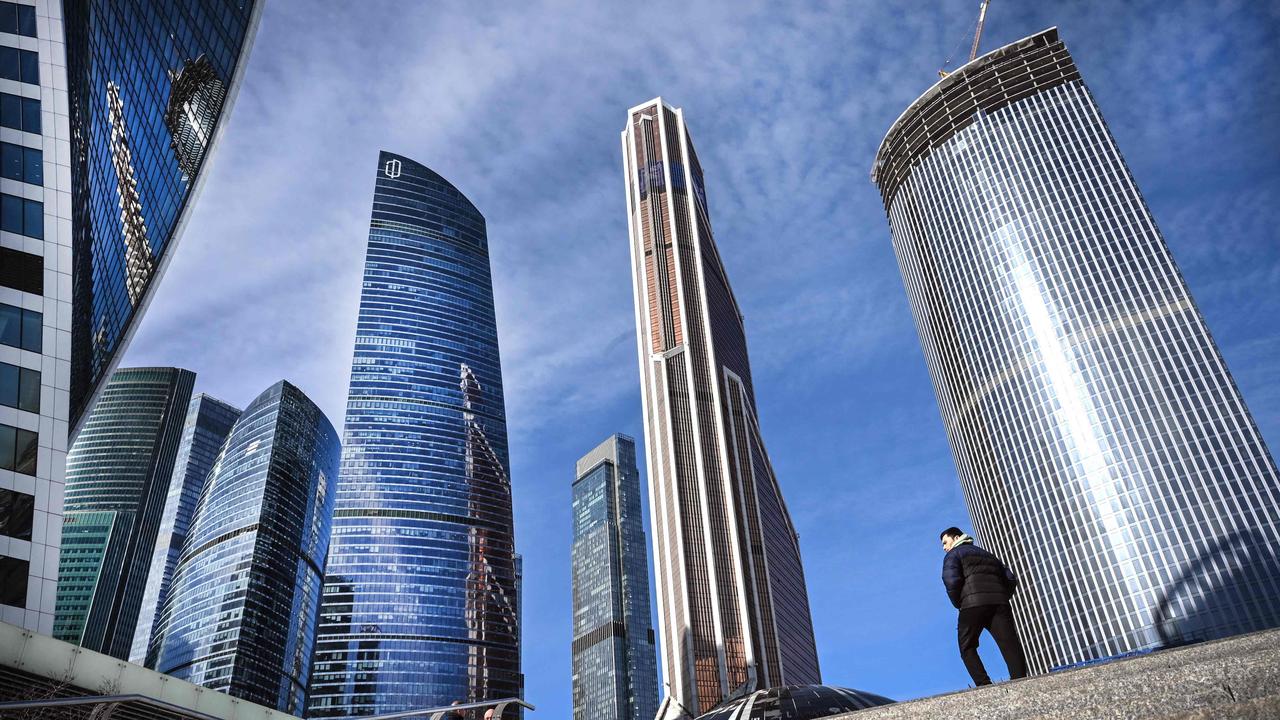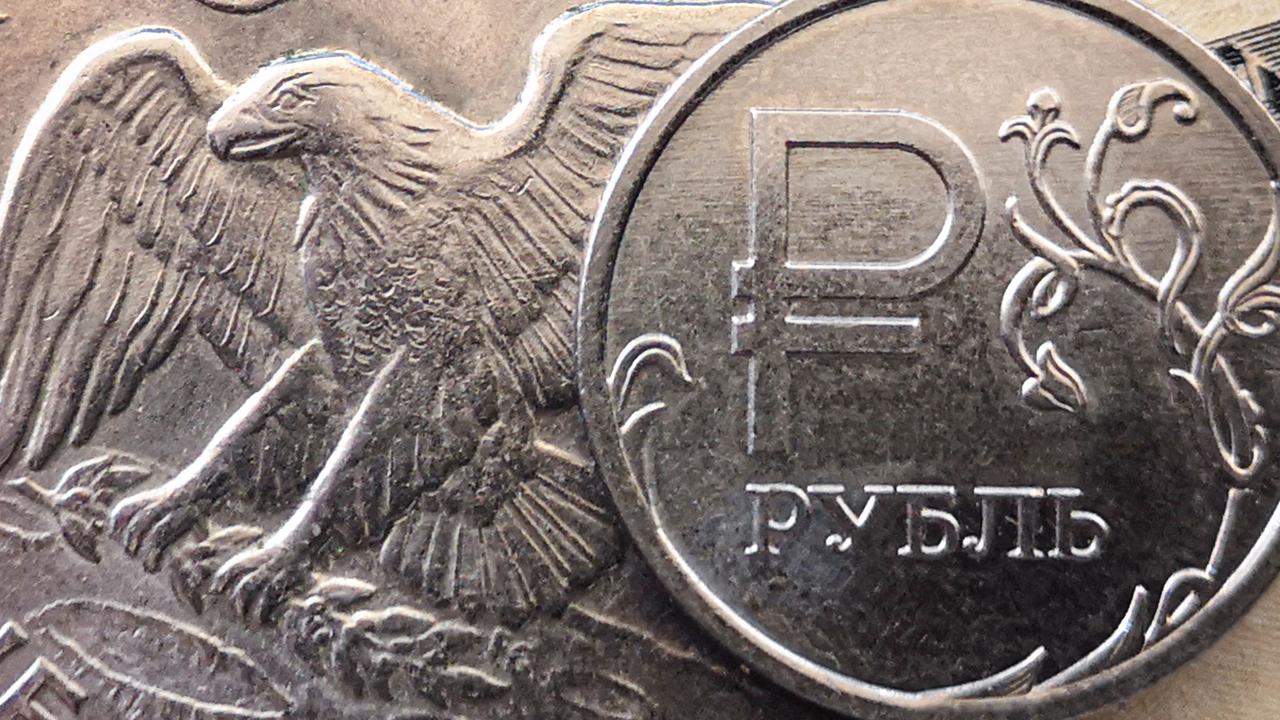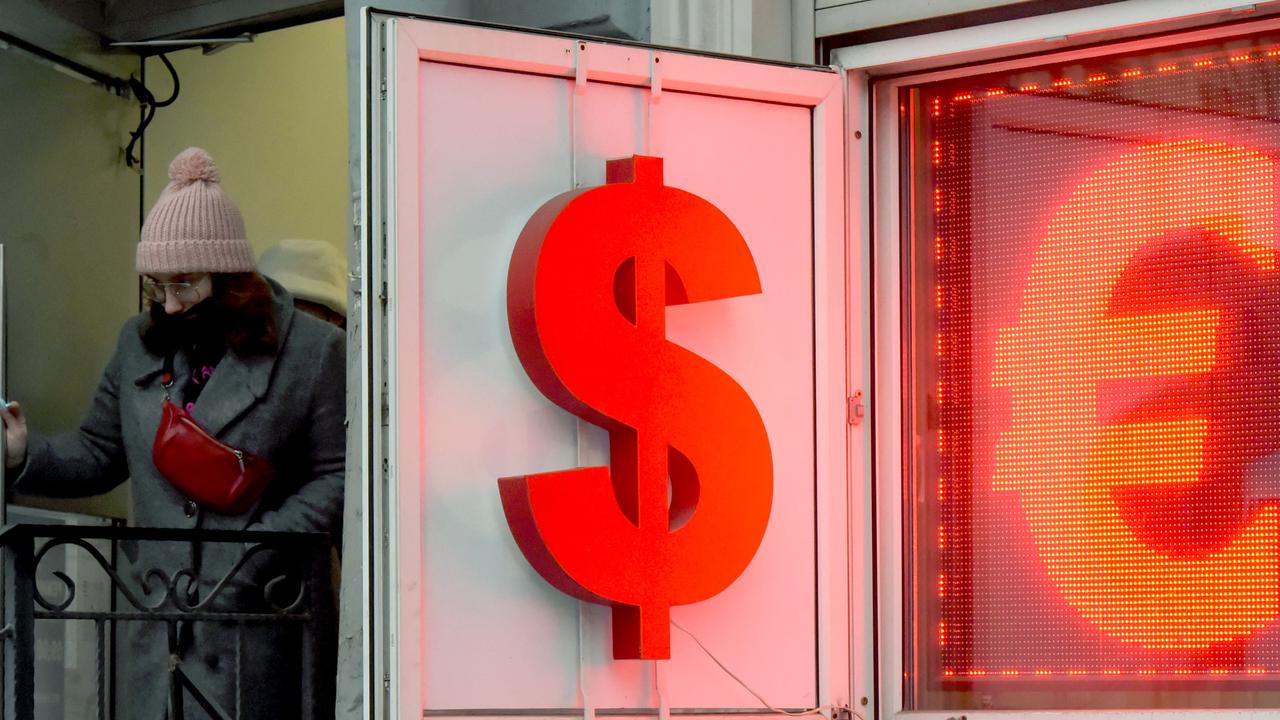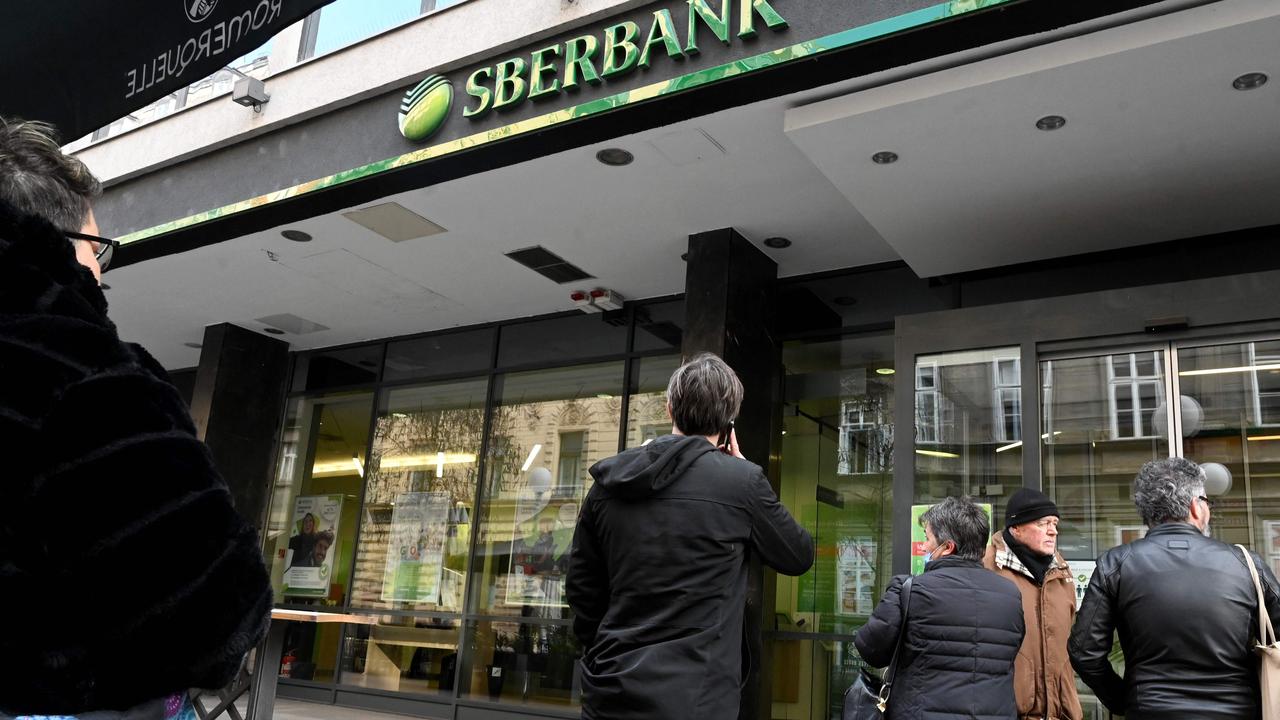Russia’s economy spirals towards $210bn default nightmare
A $163 billion debt is due to be paid but the West’s crippling economic sanctions means the country is facing “monumental” trouble.

There are warnings Russia could default on paying $210 billion worth of foreign debt, which would have “astronomical” consequences for the country and could strangle its invasion efforts in Ukraine.
The Russian government is due to fork out $163 billion to meet debt obligations on Wednesday.
While the government has said it will pay up, crippling economic sanctions imposed by the West means it can only pay in Russian rubles at a time when its currency has collapsed and is virtually worthless.
Failure to pay would see the country’s debts start to cascade with around $210 billion owed by both the government and Russian companies in the oil and gas industries such as Gazprom and Lukoil as well as the state bank Sberbank.
Meanwhile, using the local currency to pay instead of dollars could also trigger a “monumental” default, experts have cautioned.
Fitch Ratings has said the default is “imminent”, while others have predicted a 70 per cent chance.

Associate Professor Eliza Wu from the University of Sydney said there would be long term consequences for Russia if they default on their debt – while the invasion could also be impacted.
“It’s going to take a long time for Russia to recover from this as investors will think twice about lending them any money in the near future as the debt holders aren’t getting repaid from this,” she told news.com.au.
“Immediately there won’t be additional access to capital they need so the government is going to be in strife for funding the war, paying for any services like education and hospitals, and supporting their army.
“All of that will dry up and they won’t be able to continue to support their people, which is not a good situation to be in at all, particularly with the forced cut-back of public services for the Russian people.”
She warned that Russia faces a “long hard road back” if it defaults.
“Additional access to external financing is going to come at astronomical costs, if it’s even available, and the Russian ruble is pretty much worthless now, it’s less than US1c so there has been a significant wealth decline,” she explained.
“Russian stocks that are trading on international stock exchanges have fallen drastically, and trading is suspended on Russian shares. I’m afraid people are stuck with their Russian assets and it’s a long hard road back from here.
“So all the sanctions they have in place are unprecedented and it’s going to be hard slog, so it’s pretty hard on the people in Russia, with businesses struggling they are going to be likely laying off their employees, so unemployment is going to be picking up, growth has already been revised down and there is rising price levels.”

If current sanctions continue, which include freezing the assets of the Russian central bank in Western jurisdiction and cutting off most Russian banks access to the SWIFT system, which processes trillions of dollars’ worth of transactions every day, the situation is only going to go from “bad to worse”, Assoc Prof Wu said.
“They are going to be starved economically in terms of sustaining that warfare but having said that if you have other countries that are supporting them in other ways, in monetary ways, it can still continue for some time,” she said.
“Australia is threatening to join the US in sanctions on other countries that would be thinking of sustaining Russia’s unlawful invasion.”
China’s continuing “glaring failure” to condemn Russia for its invasion of Ukraine comes amid fears it could offer the country a financial lifeline after the US, Europe and Australia imposed hard-hitting sanctions.
Greylock Capital Associates portfolio manager Jonathan Prin said Russia defaulted on debt back in 1998 and the looming case would amount to a “monumental default”.
Siobhan Morden, from market intelligence firm Amherst Pierpont, said the sudden nature of the financial bloodbath made things worse.
“When a default is a slow train wreck due to policy mismanagement, you can reduce the economic impact and contain losses by gradually selling assets,” she told the Australian Financial Review.
“What makes this unique is this is a very sudden shock that catches everyone off guard.”

Russia has also been hit by the mass exodus of over 300 corporate companies and the prices of every day items are soaring, added Assoc Prof Wu.
“The likes of McDonald’s, Ikea, Starbucks they are all pulling out to support the global coalition, so no one wants to be doing business in Russia right now,” she said. “Russian businesses are unable to get paid because of the sanctions in place as banks are being removed from the SWIFT system, and businesses also can’t pay for imported goods or machinery or any input they need for business.
“There are major disruptions in supply chains and with the soaring prices, the central bank has increased the interest rate to 20 per cent, so they have doubled interest rates and now the cost of debt and cost of everything in the economy has skyrocketed.”

While some countries are still relying on Russia’s oil and gas as well as its grains and wheat, the US have made it clear they won’t buy anymore, so it means sources of revenue are also drying up, added Assoc Prof Wu.
“Sadly the outlook for Russia is only going from bad to worse if the Russian Ukrainian war continues and Russia isn’t giving up,” she said.
“It’s going to be very hard on ordinary Russians and clearly it’s hurting Ukraine and all of Europe and the rest of the world.
“So no one wants to see this continue but it seems like Putin isn’t giving up for now.”
Although Russia would technically have a 30-day grace period until April 15 to pay back the debt before it defaults, but experts have said that there would be little options for people to recover their funds in the near future






